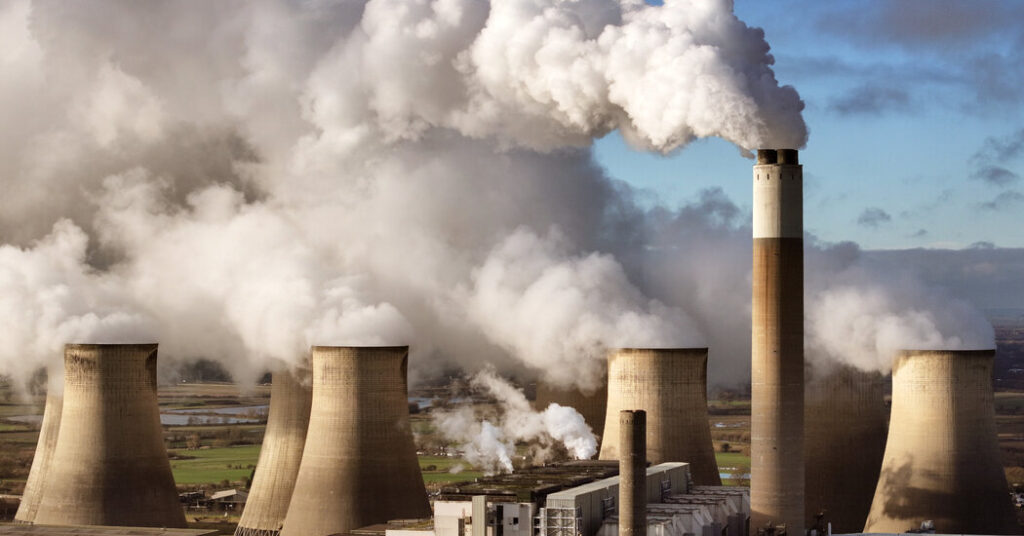Britain’s Supreme Court has ruled that local councils and planning groups must consider the full impact on the environment when deciding whether to approve new fossil fuel schemes, a decision that could have far-reaching consequences and was hailed as a major victory by climate campaigners.
In particular, the ruling will make it harder for the UK to advance plans to develop large offshore oil fields in the North Sea, including Rosebank, one of the country’s largest undeveloped oil fields. Rosebank, located off the coast of Scotland, contains an estimated 300 million barrels of recoverable oil.
Annalisa Savaresi, professor of climate change law at Scotland’s University of Stirling, said of Thursday’s ruling by the UK Supreme Court: “This is of huge significance not just in the UK but around the world. “This is not the end of oil, but it is definitely an important procedural step that is long overdue. “
Previously, UK parliaments and planning groups were obliged to consider only the planet-warming emissions from their own operations. They are now also required to estimate and disclose the emissions produced by their suppliers or consumers, such as from refining or burning oil as fuel. These emissions are generated along the so-called company “value chain” and make up the majority of greenhouse gas emissions associated with oil production.
The case is one of a growing number of climate change-related cases being decided by international tribunals, national courts and U.S. states. In January, a Norwegian court ruled that three licenses issued by the government to develop new oil and gas fields were invalid because the environmental impacts had not been fully assessed. In April this year, the European Court of Human Rights ruled that Switzerland failed to meet its targets for reducing carbon emissions and that action must be taken to address this shortcoming.
The UK ruling, handed down 3-2 by Supreme Court judges, involved a lawsuit brought against Surrey County Council in south-west London by an environmental campaigner who argued proposals for new oil wells needed to take into account the use of extracted oil to produce the impact of emissions. Justice George Leggatt, who wrote the majority opinion, wrote that the burning of oil at the site was “unavoidable” and therefore needed to be considered.
Stephen Sanderson, chief executive of BP Oil and Gas, part owner of the Surrey project, said on Thursday the decision was “puzzling” but added the company would work with local planning authorities to resolve the requirements. Variety.
Jorge Viñuales, professor of law and environmental policy at the University of Cambridge, said the decision was particularly meaningful even abroad because the UK’s highest court is not known as a radical court.
Nikki Reisch, director of climate and energy at the Center for International Environmental Law in Washington, agreed that this dynamic “gives weight to the conclusions being drawn.”
In the United States, the Securities and Exchange Commission unveiled a watered-down proposal in March that would not require companies to disclose the emissions produced by their suppliers or consumers. Businesses believe revealing the full climate impact of their projects is too complex and expensive. But Ms. Reisch said Thursday’s ruling was further evidence of the argument that U.S. agencies should also consider the entire life cycle of greenhouse gas emissions.
The use of fossil fuels is exacerbating climate catastrophes, causing increasing damage around the world, with people facing sweltering heat, floods and fires.
In the past two months alone, dozens of Mexican cities have broken heat records, killing more than 100 people. Greece is facing wildfires and temperatures in India are reaching 126 degrees Fahrenheit. Across the United States, nearly 100 million people face sweltering heat expected to last through the weekend.
The International Energy Agency, the world’s leading energy agency, said in 2021 that oil and gas exploration projects need to be stopped to control global warming by 2050, but oil companies and countries around the world continue to pursue these projects.
In Britain, Prime Minister Rishi Sunak has encouraged more oil and gas licenses in the North Sea and scaled back the Conservative Party’s climate pledge ahead of a general election scheduled for July 4.
The opposition Labor Party, expected to win the most parliamentary seats in the vote, has also scaled back its ambitious climate policies and vowed not to revoke existing oil and gas project licenses.
The Rosebank development, approved by the UK government last year, will boost the UK oil and gas industry and is expected to generate £8.1 billion (about $10.2 billion) in direct investment and support around 1,600 construction jobs during the phase. Climate campaigners have launched a legal challenge to the government’s plans, saying developing Rosebank breaches the UK’s climate commitments.
Thomas Hale, a professor at Oxford University’s Blavatnik School of Government who focuses on environmental issues, said courts reviewing high-profile cases like Rosebank “now have to take this into account, and it’s important for them It’s a huge change.”
Dr Hale added that the narrow approach taken by oil companies – which calculates emissions excluding emissions from the products they sell – looks less feasible as more courts and governments across Europe declare that integrated emissions must be considered.
“This is a big problem for investors,” Dr. Hale said. “If you think about the regulatory pressure a company might face, it’s like a warning that the approach they’re taking is not legally sustainable.”

